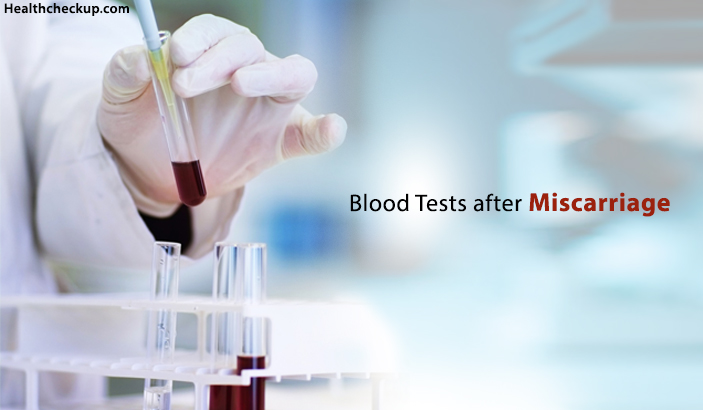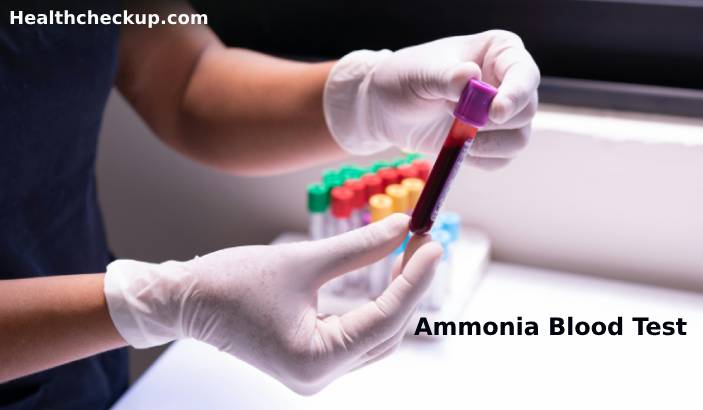Miscarriage is a commonly used term for loss of pregnancy. About 1 in 6 pregnancies end as miscarriages; the incidence of early clinical miscarriage being about 10-15% and the risk significantly increases with advancing maternal age.
Although miscarriage is a fairly common occurrence, it can be physically, mentally and emotionally, a challenging phase for any women who experiences it. Yet, these women do go on to achieve a healthy pregnancy later on.
This article will help pregnant women to know the various causes and types of miscarriage, how to confirm a miscarriage at home, blood tests after miscarriage along with what not to do after a miscarriage.
Types Of Miscarriage
Miscarriage can either be spontaneous or induced. It can also be divided into two basic types:
- Isolated Abortion – A miscarriage that occurs singly or in a single phase.
- Recurrent Abortion –A miscarriage that occurs two to three times consecutively.
Types of miscarriages can be explained under the following headings
- Spontaneous Abortion – This type of abortion is also called as miscarriage or a pregnancy which terminates without any medical or other methods or interventions.
In spontaneous abortion, the pregnant woman is unaware or may realize quite later that she has aborted.
Spontaneous abortion can further be differentiated based on the underlying cause- Natural Spontaneous Abortion – This type of miscarriage occurs due to natural reasons such as sudden shock, fear, joy, illness or affection of a particular organ or a system. Natural spontaneous abortion generally occurs during the second or third month of pregnancy.
- Accidental Spontaneous Abortion – This type of miscarriage occurs due to unintended trauma such as accidental fall or poisoning due to drugs, vegetables or heavy metals such as lead.
- Threatened Abortion – This is a clinical condition in which the process of abortion has already begun but not reached a stage from which recovery is impossible.
- Inevitable Abortion – This is a clinical condition in which changes of abortion have taken place and reached a stage from which recovery is impossible. Inevitable, meaning that abortion cannot be avoided.
- Complete Abortion – In this type of miscarriage, all products of conception are expelled from the uterus.
- Incomplete Abortion – In this type of miscarriage, all products of conception are not expelled, some are retained by the uterus.
- Missed Abortion – In this type of miscarriage, the fetus is dead and still retained in the uterus.
- Septic Abortion – This type of miscarriage occurs due to infection of the uterus or at any site within the reproductive canal.
Septic abortion can be easily differentiated from other types of miscarriages due to associated signs and symptoms of sepsis such as fever with chills, persistent vaginal bleeding, foul-smelling vaginal odor, and pelvic region pain, discomfort and tenderness.
Causes Of Miscarriage
A variety of external as well as internal factors may be responsible for miscarriage. Some of the common causes for miscarriage are mentioned in brief below:
- Chromosomal abnormalities
- Thrombophilias – An abnormality in blood clotting wherein blood clots tend to form within circulating blood
- Endocrine causes such as
- Insulin resistance
- Polycystic ovarian syndrome
- Diabetes mellitus
- Luteal phase defect
- Thyroid disorders
- Failure of embryo selection
- Uterine malformations
- Lifestyle factors such as
- Alcohol consumption
- Cigarette smoking
- Drugs
- Advanced maternal age
- Obesity
- Infections Of The Reproductive Tract – Bacterial, viral or fungal.
[Also Read: What Is Polycystic Ovarian Syndrome]
Signs And Symptoms Of Miscarriage
Most miscarriages occur during the second or the third month of pregnancy, which is also called the first trimester of pregnancy. Some of the signs and symptoms suggestive of miscarriage are
- Vaginal Bleeding – This could be either a cause or a consequence of miscarriage. Not all women experience vaginal bleeding before the loss of pregnancy. Women having chronic inflammation of the reproductive tract may have bleeding from the affected site leading to uterine contractions and expulsion of the fetus.
- Severe lower abdominal pain and cramps
- Severe backache
- Fever and generalized weakness.
[Also Read: Home Remedies For Abdominal Pain]
It is important for pregnant women to understand alarming signs and symptoms of a miscarriage so that they can confirm a miscarriage at home even before going to the doctor for a blood test or an ultrasound to get an affirmative diagnosis of miscarriage.
Blood Tests After Miscarriage
Once the patient has reported one or more of the alarming signs and symptoms of miscarriage, blood tests, as well as an ultrasound of the abdomen and pelvis or transvaginal ultrasound, is advised to confirm a miscarriage.
Blood tests after miscarriage allow detection of the possible cause for miscarriage. Some blood tests after miscarriage may be as follows
1. Complete Blood Count
This is a basic hematological test done after a miscarriage. A complete blood count gives details about
- Hemoglobin – If the blood loss has been signed or not responding to any medications, a drop in the hemoglobin count may be observed.
- White Blood Cells – The presence of white blood cell count greater than the upper limit of the normal reference range may suggest infection as a cause of miscarriage.
- Platelet Count – Gives an idea about the cause of bleeding. Low platelets can cause poor coagulation and hence more bleeding. High platelets, on the other hand, can increase the risk of clot formation within the circulation.
- Other red cell indices such as MCH, MCHC, MCV, and PCV may give a clue regarding the general health status of the woman as well as the probable underlying cause for miscarriage.
[Also Read: What is MCHC Blood Test]
2. Human Chorionic Gonadotropin (HCG)
HCG blood test for this hormone is done often even before confirming a miscarriage via an ultrasound.
- During the first trimester, HCG levels rise as the pregnancy advances.
- The presence of this hormone in urine confirms pregnancy.
- Subsequently, a drop in human chorionic gonadotropin hormone levels in blood on two quantitative tests especially during the first trimester of pregnancy suggests impending miscarriage.
- After a miscarriage, HCG levels return to the non-pregnant state by about 4-6 weeks.
- It is, therefore, a common practice to test for human chorionic gonadotropin hormone serially until the levels return to the non-pregnant state.
3. Chromosomal Tests
If a woman has experienced recurrent miscarriages, that is loss of pregnancy two times or more, the female along with her partner is suggested to undergo chromosomal tests to understand if the miscarriages occur due to chromosomal abnormalities.
After miscarriage has occurred, a woman can resume her regular routine within a couple of hours or a few days depending upon her physical strength. Yet, there are certain measures which women must undertake which ensure faster recovery with lesser complications, such as
- Complete Rest – It is important to allow your body and mind to rest after a miscarriage. It is important to provide your body an ample amount of time to recover and return to the non-pregnant state.
- Warm Fomentation – Occasional abdominal cramps and back pains are a part and parcel of recovery from a miscarriage. A hot water bag can be used to obtain relief from such cramps or back pain.
- Pads/Tampons – You may notice vaginal bleeding which will gradually reduce over a period of few days. Keep sanitary pads handy. Tampons can be used if spotting is present, not for heavy bleeding.
- Avoid having sexual intercourse until and unless the cramps and vaginal bleeding has stopped completely.
[Also Read: Precautions To Be Taken During Early Pregnancy]
Women can also take oral contraceptives by prescription for the first month following a miscarriage to avoid pregnancy immediately, or as advised by the gynecologist.
Miscarriage is a physically and emotionally stressful period for any woman. However, that doesn’t make the chances of having a successful pregnancy bleak. Adequate rest, care and a healthy, nutritious diet will ensure quick recovery after miscarriage.
Dr. Himanshi is a Homoeopathic consultant and currently working as a lecturer in Post-graduate faculty of Homeopathy, Parul University, Vadodara. Completed BHMS and MD in Homeopathy in January 2018 and also has a clinical experience of about 6 years. Personal interests include reading, spending time with family and traveling.








